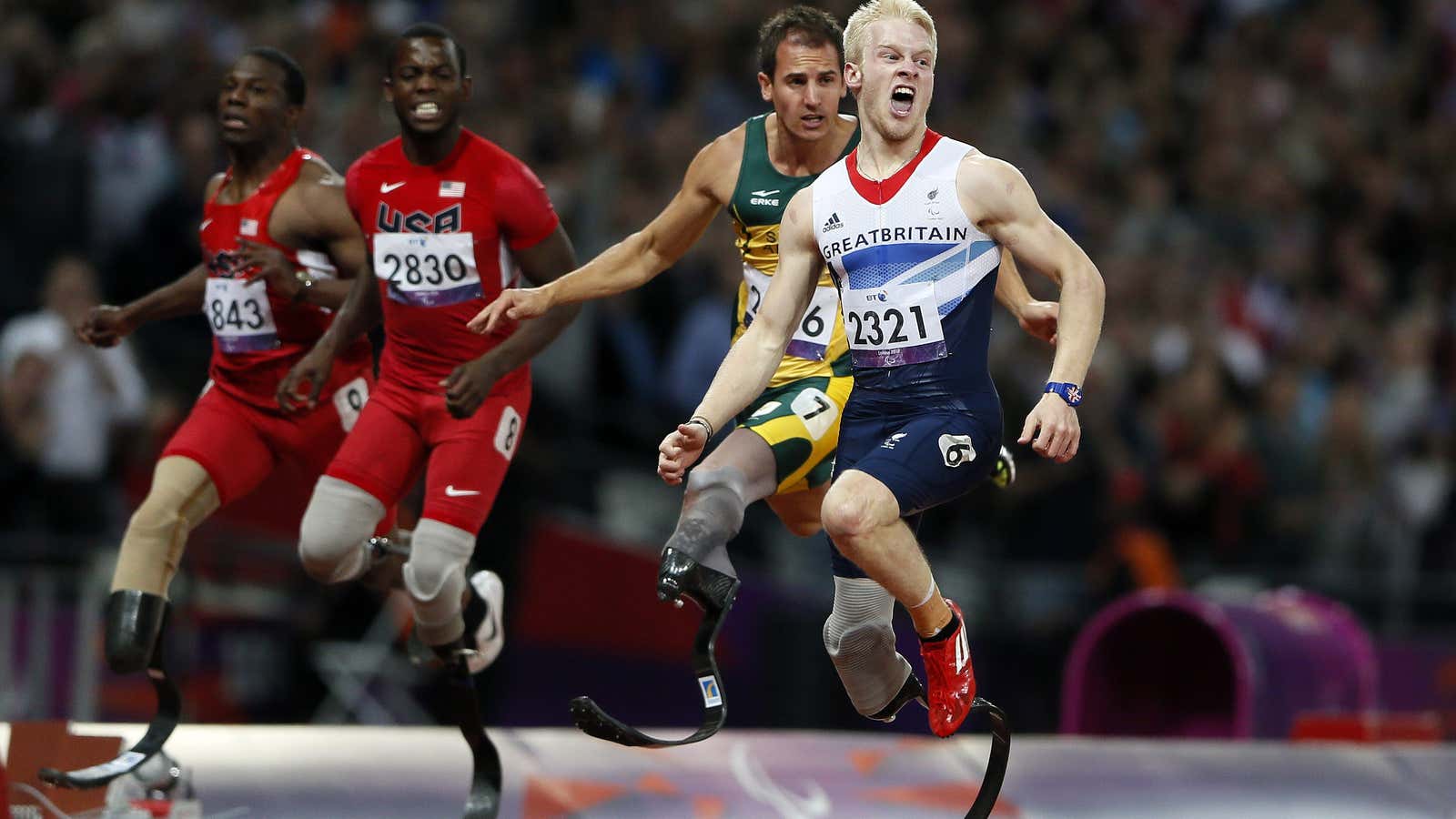The last Paralympic Games in London were the most successful ever.
They sold more tickets— 2.72 million—than any previous Paralympics. That is a million more than Beijing, turning it into the third-largest sporting event in terms of ticket sales, behind the Olympics and FIFA World Cup. It was broadcast to more people in more countries than ever before and audience figures internationally rose by 37% outside of the UK to a new record.
International Paralympic Committee chief executive officer Xavier Gonzalez praised London for delivering the “best-ever Paralympics Games” and challenged Rio to build on the success of the 2012 Games. But with the Rio Olympics now over, paralympic athletes will soon arrive to a city woefully unprepared.
Only 12% of available tickets for next month’s Paralympics in Rio have been sold—that is a total of 300,000. The Paralympics start on Sept. 7.
As a result, the Paralympic Games are facing major budget cuts, which will affect the venues, workforce, and transport. Organizers were two weeks late in paying €8 million ($9 million) in travel grants, which was meant to support competing athletes and officials. Even with the delayed grants now to be paid to athletes, around 10 teams are still struggling to get to Rio.
“Never before in the 56-year history of the Paralympic Games have we faced circumstances like this,” the IPC president Philip Craven said in a statement. “At this point it is difficult for us to expect the full venues that we saw in Beijing or London, or expect to see in Tokyo in four years’ time.” Rio is using almost $50 million in public money to try to bridge the funding gap.
This has led some athletes to accuse Rio authorities of discrimination. “It does feel like they’re being treated like second-class citizens,” the 11-times Paralympic gold medalist Tanni Grey-Thompson told ITV News. So much so that one senior member of the Olympics hierarchy has suggested that the International Olympic Committee should bail out its disabled-sport counterpart.
